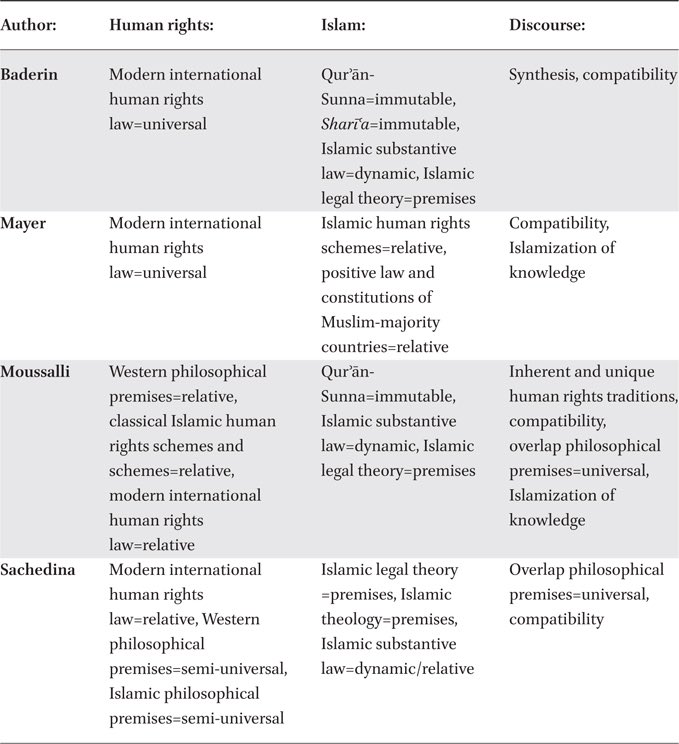
In a series of threads I’ll focus on another combination of Islamic studies and philosophy of religion: Islam and human rights.
This topic is mainly approached from the pov of legal studies whereby both Islam and human rights are approached as contemporary positive law.
~aym
This topic is mainly approached from the pov of legal studies whereby both Islam and human rights are approached as contemporary positive law.
~aym

But as I argue in my JIE article, only one part of Islam overlaps with what we would call positive law, while the rest would fall under legal theory and ethics.
~aym
brill.com/view/journals/…
~aym
brill.com/view/journals/…
Apart from the false reduction of Islam to law, there is also the issue of the historicity of human rights discourse. Are human rights a modern invention? Have we become more humane over the centuries? Were some ethical concepts unknowable in the centuries before?
~aym
~aym
And also why and how have human rights become the moral yardstick for cultures and countries? Is it a fair stick to use, and who is measuring? This is important as among the world religions Islam is uniquely accused of having a ‘human rights deficit’.
~aym
~aym
Much of this accusation is not grounded in empirical data, but in a centuries old view that Islam by nature is ‘barbaric’ compared to the Europe or the ‘West’. Islam and Muslims were and are approached as the West’s Other when it comes to intellectualism and morality.
~aym
~aym
We see this in the early development of Western discourse concerning Islam which centered around the theological differences between Islam and Christianity, and the 19th century construction of a cultural dichotomy between the ‘civilized west’ and the ‘barbaric east’.
~aym
~aym
With the 20th century decline of the centrality of Christianity within the West, the cultural discourse has come to the foreground, shifting Western engagement to
Islam from a clash of religion to a clash of civilization.
~aym
Islam from a clash of religion to a clash of civilization.
~aym
After 9/11 this focus extended beyond the academic field. Scholars and non-professionals, Muslims and non-Muslims alike,
wrote to explain, incriminate or apply apologetics towards Islam and Sharīʿa versus Christianity, the West, secularism, democracy,
and human rights.
~aym
wrote to explain, incriminate or apply apologetics towards Islam and Sharīʿa versus Christianity, the West, secularism, democracy,
and human rights.
~aym
Just as William Cavanaugh observed the dichotomy of ‘religious violence = barbaric’ versus ‘secular violence = civilized’. We can observe a similar dichotomy in ‘Islam and human rights’ discourse as in ‘Islam(ic law) = barbaric’ versus ‘secular/Western (law) = civilized’.
~aym
~aym

Such absolutist claims about historical religious constructs “depend upon a concept of religion as something that retains the same essence over time, retains the same essence across space, and
is at least theoretically separable from secular realities” (Cavanaugh).
~aym
is at least theoretically separable from secular realities” (Cavanaugh).
~aym
To understand the relation between human rights and Islamic law, we’ll use four standard works to construct a typology which can provide insights where compatibility and
non-compatibility lies, and where possible renewal, reform, and reinterpretation of Islam is needed.
~aym
non-compatibility lies, and where possible renewal, reform, and reinterpretation of Islam is needed.
~aym

One of the important insights comparison provides us is that both Islam and human rights can be approached either as positive law (Baderin, Mayer) or as moral philosophy or theory (Moussalli, Sachedina), and therefore a multiplex approach is needed.
~aym
~aym
The overall majority of literature on Islam and human rights
states that a form of compatibility between Islam and modern human rights is possible, but many also believe that a true form of compatibility has not
been attained yet. It is a new field.
~aym
states that a form of compatibility between Islam and modern human rights is possible, but many also believe that a true form of compatibility has not
been attained yet. It is a new field.
~aym
So there is much to be done, which I will discuss in a new thread.
~aym
~aym
@threadreaderapp unroll
• • •
Missing some Tweet in this thread? You can try to
force a refresh



